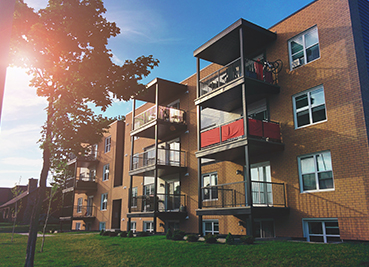
As seen in Colorado Real Estate Journal
Denver’s real estate market has weathered the downturn and is set to experience a strong resurgence in 2025. Supported by solid economic fundamentals, steady population growth, and high-demand sectors like industrial and multifamily, the Mile High City is poised to reemerge as a top investment target. With capital flowing back into real estate and traditional gateway markets facing persistent headwinds, Denver’s unique blend of stability and growth makes it one of the most attractive secondary markets for investors.
The city’s diverse economy has been key to maintaining its resilience. As the U.S. economy is projected to grow 4%-5% over the next 12 months, Denver’s core industries – technology, aerospace and health care – are expected to thrive, fueling job creation and bolstering demand across property sectors. The state’s appeal as a destination for corporate relocations will continue to attract companies seeking lower costs and a skilled workforce, driving demand in both office and multifamily markets.
High-income professionals moving into the city will further support a broad-based recovery in Denver’s real estate landscape. The city’s relative affordability compared to coastal markets and its reputation as a lifestyle destination make it an appealing choice for both companies and residents. These factors set the stage for strong performance across office, multifamily and industrial assets.
The multifamily sector, which faced challenges during the downturn, is expected to rebound significantly in 2025. Colorado’s population has increased by over 15% in the past decade, and with the continued rise of remote work, rental demand remains strong. Multifamily construction starts have dropped to their lowest levels in 10 years, helping to sustain stable occupancy rates across most markets, excluding Colorado Springs. As future supply remains constrained, investor attention is likely to shift toward value-add opportunities and new development projects to accommodate growing demand.
Denver’s industrial market is also set for continued strength. Its strategic location as a logistics hub for the Western U.S. positions it as a prime market for distribution and e-commerce firms. Even with new developments coming online, demand is projected to outpace supply, keeping vacancy rates low and rent growth steady. Investors will continue targeting high-quality logistics and last mile facilities, particularly near key transportation routes such as the Interstate 25 corridor and Denver International Airport.
The direction of interest rates will be a pivotal factor in Denver’s real estate outlook for 2025. While short-term rates are anticipated to decline, uncertainty remains around the stabilization of long-term rates. If long-term rates dip below the current high 3% range, cap rates in Denver are likely to compress, driving more capital into the market and boosting property values. However, if long-term rates remain elevated, higher financing costs could curb some acquisition activity. Regardless, Denver’s strong fundamentals should continue to attract investors seeking long-term stability and growth.
Despite ongoing national challenges, Denver’s office market is expected to stabilize in 2025. The city’s lower costs, high quality of life, and skilled talent pool make it a prime location for tech and professional services firms expanding or relocating. Growth is likely to be concentrated in high-quality buildings in desirable submarkets like LoDo and Cherry Creek, which are drawing tenants looking for flexible, amenity- rich spaces to accommodate hybrid work models.
Additionally, Denver’s emerging life sciences sector will play an increasingly important role in office demand. With research institutions and a growing health care cluster, life sciences companies are seeking specialized lab and office space, presenting unique investment opportunities in this niche segment.
The housing market in Denver is expected to tighten further in 2025 as strong in-migration and limited new supply continue to drive demand. The city’s shrinking construction pipeline, hindered by rising costs and regulatory challenges, will prevent oversupply and support steady rent growth. Both multifamily and single-family rentals are anticipated to maintain low vacancies, making the market highly attractive to investors.
Single-family rentals, in particular, are poised to benefit as families seek more space amid affordability challenges in the homeownership market. Institutional investment in single-family rental portfolios is expected to rise, as demographic trends continue to favor renting over buying.
As real estate investment activity ramps up in 2025, Denver is well-positioned to capture a significant share of new capital inflows. Institutional and private equity investors are increasingly focusing on secondary markets that offer stability and growth, and Denver’s fundamentals align perfectly with this strategy. Its relative affordability and high growth potential make it a top destination for capital seeking long-term value.
This anticipated surge of capital will intensify competition and drive further appreciation, particularly in the multifamily and industrial sectors. Investors should be prepared for a competitive landscape as more players enter the market to capitalize on Denver’s improving fundamentals.
Overall, Denver’s real estate market is set for a robust rebound in 2025. Its economic resilience, strong population growth and performance across key sectors make it an ideal choice for investors. With a tight housing pipeline and stabilizing office and industrial markets, Denver is poised to benefit from renewed investor confidence.
With a unique combination of growth, stability and relative affordability, Denver offers compelling opportunities for both institutional and individual investors. As momentum builds, Denver’s diverse real estate sectors are set to deliver strong returns, solidifying its status as a prime target for investors navigating a recovering landscape.




